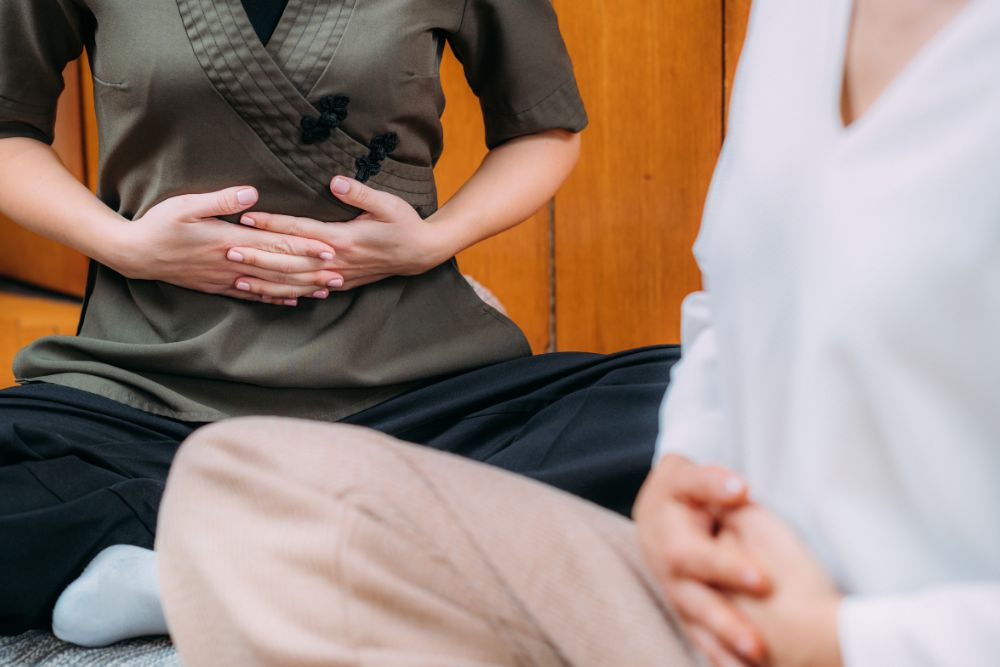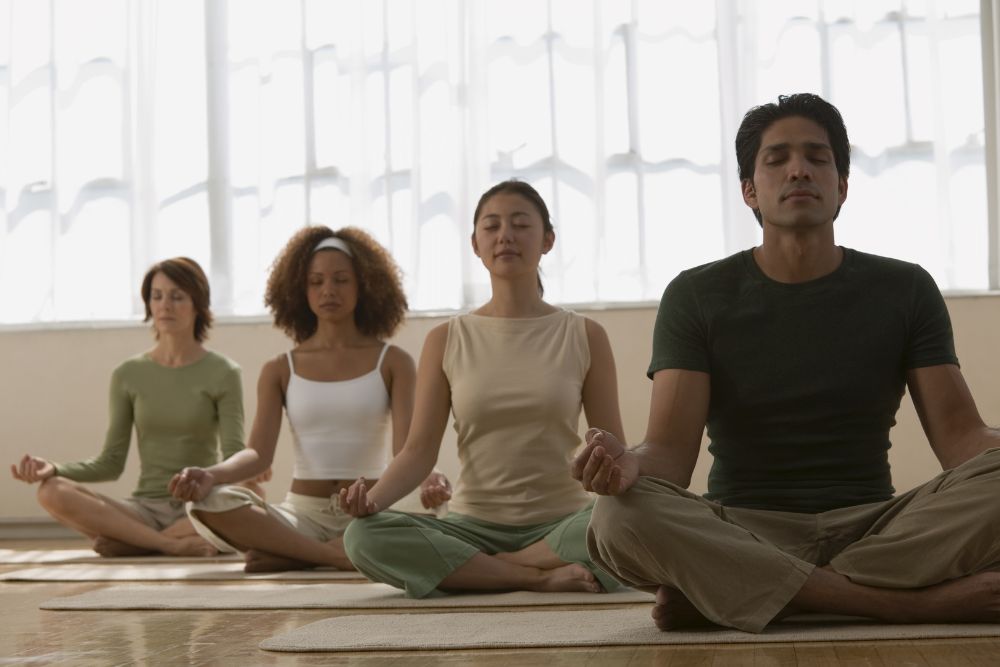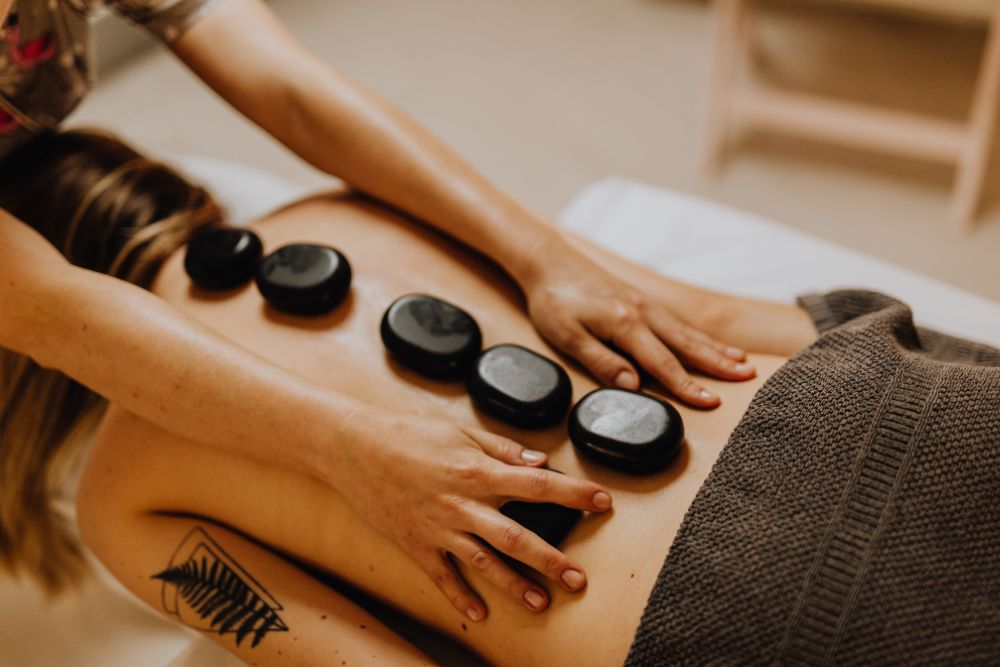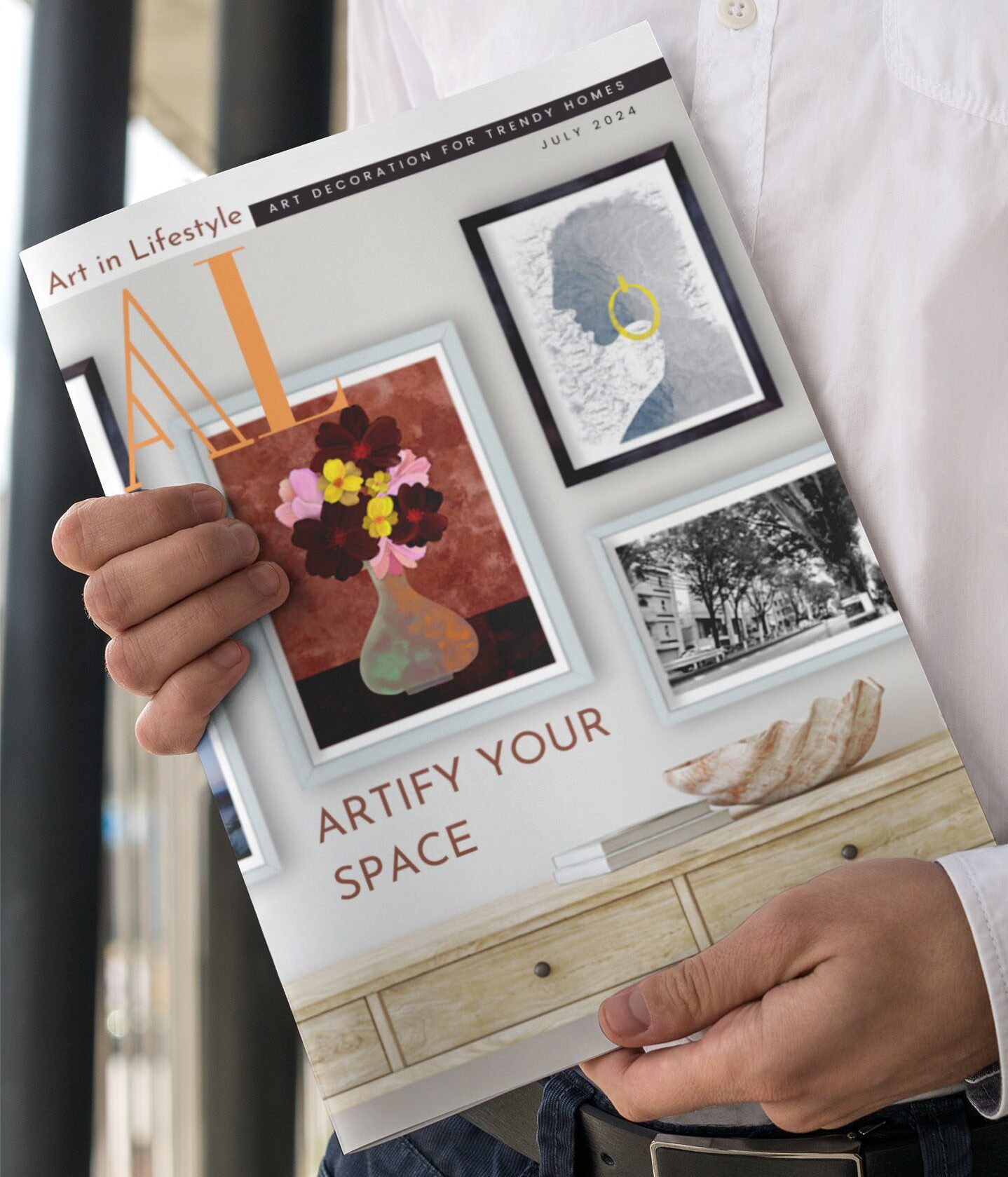This article contains links to products thoughtfully selected for you. We may earn a commission on some of the items you choose to purchase, helping us to continue sharing helpful tips and recommendations with you.
There are times when we suffer major setbacks that can cause our self-esteem and confidence to take a beating. Situations like not doing well for an exam, a slowing business, facing a job retrenchment, divorce, handling difficult customers or simply having a “bad day” at work can leave us in despair and feeling disappointed.
Pulling ourselves together so that we can carry on is easier said than done when we cannot stop thinking about what went wrong and fall into a state of self-blame. Taking time for self-care is, therefore, really crucial to find that mental clarity to replace gloom with resolve. Here are some tips.
1. Deep Breathing


Some of us may experience shortness of breath and rapid heart rate when we are upset or angry. This is a natural “fight or flight” stress response of our body that helps us to confront or escape danger quickly. This may be useful when swift actions are needed to avert a crisis, for example. However, a prolonged stress response can lead to high blood pressure and anxiety. This, in turn, can trigger “mind fog”, mental paralysis, and eventually, depression.
Deep breathing can help to slow down the heart beat, cause muscles to relax and ease blood pressure. When done correctly, deep breathing can help to disengage from negative thoughts. The most effective type of deep breathing is called Diaphragmatic Breathing.
2-minute Diaphragmatic Deep Breathing
- Sit down or lie down flat on your back.
- Place one hand palm down on your chest and the other hand palm down on your belly.
- Inhale through your nose slowly and let the air fill your belly. You should feel your belly rising.
- As you continue to inhale, suck in your belly inwards and let the air from the belly fill your chest. You should feel your chest expanding.
- Try to complete the inhalation within 4 seconds.
- Hold your breath for 4 seconds, and then passively exhale to let the air out naturally by relaxing your lung muscles for 6 seconds.
- While exhaling, relax all the muscles in your body starting from the head to the feet. Feel the sensation of “letting go” in your mind and body.
- If you’re sitting down, allow your head to droop forward gently as your neck relaxes.
- Repeat and perform Diaphragmatic Breathing for not more than 2 minutes.
What You Will Need
- Books that offer techniques and insights on effective deep breathing practices.
- Create a soothing ambiance conducive to relaxation and deep breathing.
— Advertisement – Continue Reading Below —
2. Meditate & Visualise


Meditation is a popular stress reduction technique and usually starts with a proper deep breathing practice. In fact in some cultures, it is accepted as a type of complementary medical treatment for the mind and body. The first documented records of meditation for mental restoration dates back thousands of years to 3000 BC in ancient India.
The best way to start meditation is via guided meditation. This means engaging a meditation teacher who is masterful at helping you focus on calming thoughts. There are various meditation methods and the technique can be different for every teacher. In essence, meditation involves a set of gentle mental exercises that draws your attention to the present moment.
It’s common to be told to focus on the teacher’s voice and allow your mind to follow a set of instructions that detaches you from the stream of negative thoughts. A clear mind is capable of more coherent thinking and decision making. It also boosts confidence and happiness. Here’s a snapshot of meditation techniques that help you relax and increase self esteem:
Types of Meditation
- Silva Method: This meditation method is developed by José Silva in the 1960s. You are guided through a systematic relaxation sequence and develop images to visualise a desired situation that makes you happy. It is like looking into a crystal ball and divining a better future. You are able to set goals and visualise the steps to achieve them.
- Body Scan: For this meditation, it is best performed lying down. Bring your attention to every part of your body starting from the top of the head to the feet. Mentally scanning your body helps you to detect any tension. Take a deep breath and exhale to release both muscular and emotional tension at each localised body part.
- Spiritual Immersion: Religious teachings in Hindu, Buddhist, Christian, Islamic and Judaic traditions offer prayers or mantra based on worship. This practice ultimately guides you to submit your affairs to a higher power and accept the rise or fall of circumstances as part of your growth. The act of “letting go” helps to clear mental overload and relieve stress.
- Sound Bath Meditation: This form of meditation surrounds you with light soothing sounds made with a gong, crystal glass, metal bowl or bell. The sound creates a focal point that puts you in a meditative state. You will feel transported to another transcendental space far from your burdens. It is such an effective way to de-stress quickly. This makes sound bath meditation a great way to start any other meditation.
- Gesture Meditation: Hand positions or movements are included in this meditation to shift your focus and bring your awareness to present physical sensations. Mudra is the Sanskrit word for various hand positions such as the Gyan, Buddhi, Prana, and many more (there are 100 mudras). Other than centering your concentration, each position brings additional unique benefits from improved knowledge to better digestive health.
What You Will Need
- A comfortable cushion and mat can help maintain proper posture and comfort during meditation.
- A mindfulness bell can gently signal the start and end of meditation sessions.
- Meditation candles can enhance the sensory experience of meditation with soothing scents.
— Advertisement – Continue Reading Below —
3. Exercise


Exercising is a proven way to overcome stress and anxiety. First and foremost, exercising gets you up and moving so that your mind focuses on your movements instead of whatever’s troubling you. The rejuvenating effects of exercising is almost immediate. When your body feels good, your mood will also improve.
The “high” that you feel after a workout gives you a sense of control over your life. Plus, setting workout goals to achieve certain fitness levels helps to build a strong mental mindset to accomplish more in life. To enjoy more long-term positive effects, it is best to exercise regularly by following a fitness schedule and do it with a buddy for added motivation.
However, if you have never exercised or have difficulties in following a fitness schedule, it is not recommended to suddenly take up weight training or running. Engaging in rigorous workouts will first require a doctor’s consultation. You will also need to build up your strength and endurance gradually.
Instead, take up activities that fit your lifestyle and schedule better. Here are some examples that are both simple and enjoyable to keep you motivated to make time for them. And you do not need a gym membership to do them.
Simple and Calming Exercises
- Stretching
- Walking
- Yoga
- Tai Chi
- Qigong
- Hiking
- Gardening
- Swimming
- Cycling
- Stair climbing
What You Will Need
- A good quality yoga mat provides comfort and stability for various exercises.
- A stretch strap aids in deepening stretches and improving flexibility.
- A foam roller is great for muscle relaxation and improving flexibility.
— Advertisement – Continue Reading Below —
4. Take Up A Sport


If you don’t like exercising alone and can’t find a buddy, you may want to consider joining a sports group. This way you will not only get to exercise, but you will also learn something new with the support of a community. It is also a great opportunity to cultivate social skills. Sports camaraderie encourages team spirit that helps you learn to handle conflicts while remaining calm.
Enthusiasm is felt when problems are resolved collectively. Goals are set based on a shared vision. Successes and failures are experienced together. This fosters a “can do” culture based on honesty and trust in which team members look out for one another. Coaches and team leaders stand as role models to both emulate and confide in.
Sports Club for Any Level
- Aikido
- Freediving
- Dancing
- Basketball
- Golf
- Tennis
- Bowling
- Archery
- Fishing
- Pickel ball
— Advertisement – Continue Reading Below —
5. Get A Massage


Massage therapy helps to alleviate muscle tension and pain. Getting a massage gives a feeling of being pampered, which makes it an effective de-stressor. A human touch on the skin can feel reassuring and helps you connect with your body. Being comfortable with someone seeing and touching physical imperfections can improve self-esteem and confidence.
A massage stimulates the nervous system causing the brain to reboot. This is helpful in gaining new perspectives and remap your life’s goals. A skilled massage therapist can create a calming and safe experience. This sense of security nurtures acceptance of a disconcerting situation as part of life’s imperfections. The same sense of security cultivates a desire for self-regulation to improve both your health and circumstances.
Types of Massage
- Aromatherapy: Reduces stress and anxiety, relieves pain and boosts the mood.
- Reflexology: Treat nerve problems and boosts the immune system.
- Swedish: Reduces inflammation and fatigue.
- Tuina: Energy balancing similar to acupuncture and improves musculoskeletal functions.
- Deep tissue: Aids injury recovery and may reduce high blood pressure.
- Thai: Stimulates circulation, relieves headache and boosts energy.
- Shiatsu: Improves emotional well-being, reduces stress and relieves muscle tension.
- Hot stone: Heated stones treat injuries, reduces stiffness and increases blood flow.
- Sports: Aid in injury recovery and improves muscular performance.
- Somatic: Releases trauma and builds emotional awareness.
- Lymphatic draining: Removes waste and toxins from body tissues.
What You Will Need
- Handheld massagers are versatile and can target specific areas for relief.
- High-quality massage oil enhances the massage experience by reducing friction and providing aromatherapy benefits.
- Shiatsu massagers mimic the pressure and motion of a real Shiatsu massage.
— Advertisement – Continue Reading Below —
6. Join A Charity


Although not a direct form of self-care, helping others is a good way of shifting your attention towards people in need. Understanding the crisis experienced by others and offering them ways to cope also helps to shine some light on how to handle your own issues. Being kind to others and lending support will cultivate a sense of purpose. The act of giving strengthens moral convictions and builds personal values. This will motivate you to do what is right for yourself and for others.
Seeing others feeling happy from your generosity will in turn boost your confidence, health and happiness. Research has shown that being charitable is emotionally rewarding primarily because it develops empathy and human bonding. There is an understanding that, as humans, we cannot overcome grief alone. Self-discovery requires community involvement and support.
Interdependency is a form of tribal instinct that has been hardwired into human beings. We thrive by the adage that there is strength in numbers. Don’t worry if you can’t find the time for volunteering. Donate money instead. Monetary donation will create a sense of prosperity and personal satisfaction. Knowing that you can make a difference in someone’s life will reap great benefits for your own health and mental well-being.
How to be More Charitable
- Select the causes you care about.
- Make inquiries on areas where they need help the most.
- Review which of your skills you can offer, especially where they can make the most impact.
- Set up a schedule for volunteering e.g. weekly, monthly, bimonthly, etc.
- Set aside a budget for both regular and ad-hoc monetary donations. The quantity matters less than the thought.
— Advertisement – Continue Reading Below —
7. Self-Affirmation


Self-affirmation is an act of making positive declarations or assertions to yourself to cancel out self-doubt. By saying positive phrases out loud, you restore confidence by overcoming negative thoughts. Research has shown that self-affirmations have resulted in improved academic grades for underperforming students. This is because self-affirmation helps to:
- Reduce stress and anxiety.
- Focus on personal well-being.
- Invoke a sense of determination.
- Provide a sense of assurance.
In one study conducted by Carnegie Mellon University, participants with high levels of chronic stress were told to complete a challenging problem-solving task. Participants who underwent a brief self-affirmation session before the task performed better and as well as participants with low levels of chronic stress.
Repeating positive phrases about yourself can reprogram your sense of self-belief. Repetition has been known to reinforce behaviours, good habits and fresh mental perceptions. Practicing self-affirmation over and over again will embed positive thoughts into your subconscious. This will equip you with the courage and calm to handle adversities more effortlessly.
When repetitive self-affirmation is paired with positive visualisation, you will envision your desired outcome and forge realistic pathways to achieve your aspirations. The act of repetition also means you need to be consistent and persistent in practicing self-affirmation as part of your personal growth.
Self-Affirmation Phrases for Growth
- I am powerful and unstoppable.
- I am strong in the face of any challenge.
- I feel confident now, today and everyday.
- I am not controlled by my circumstances.
- My past does not define my future.
- Obstacles are part of my journey to success.
- I am healthy and strong.
- Fear I do not because I am a winner.
- I am my own competitor and I am going to make myself proud.
- I am grateful and contented.
— Advertisement – Continue Reading Below —
8. Invest In Learning


Continuous learning can enhance self-esteem by providing new skills and knowledge. Pursuing personal and professional development keeps you engaged and confident in your abilities. This helps to renew your viewpoints and create opportunities for continuous improvement. Sometimes when we face problems, we are thrown into an unfamiliar situation. Other than asking someone else for assistance, taking up courses on the matter will help you to explore new and alternative solutions.
The fresh knowledge enables you to develop new skills to apply in your job and in your life. This will in turn help you to remain competitive and increase satisfaction in whatever you do. Continuous learning should be a lifelong pursuit and it doesn’t need to be as structured and formal like conventional education.
Lessons can be informal and self-directed based on the interests and passions that you want to expand. A desire to learn something new nurtures curiosity, stimulates intellectual growth and pushes you to apply yourself differently. This builds adaptability to handle life’s challenges, leading to a greater sense of accomplishment and self-worth.
Ways to Pursue Continuous Learning
- Online courses: Platforms like Coursera and Udemy offer a wide range of courses.
- Workshop and seminars: Attend workshops to learn new skills and network.
- Reading: Regularly read books or articles in your field to stay updated.
- Writing: Research and write on help topics to record new insights.
— Advertisement – Continue Reading Below —
9. Eat & Nourish


Emotional overload can leave you feeling drained and exhausted. Having to pick yourself up again after experiencing setbacks require courage and strength. You will need to recharge by getting enough rest and re-energise by eating the right food. In fact, science has proven a link between what we eat and mental health. Firstly, it is vital to eat a nutritious and balanced diet to improve self-esteem and confidence.
The nutrients from the certain foods promote the natural production of mood-boosting chemicals in our body, namely, serotonin and dopamine. People who consume these nutrients regularly in their meals are less prone to depression. Serotonin plays a key role in regulating sleep, mood, digestion and healing. Dopamine, also know as the “reward chemical”, is associated with improving concentration, satisfaction, pleasure and movement.
Both serotonin and dopamine are released by the brain and responsible for maintaining mental health. Also called neurotransmitters, they control bodily functions that help you to rebound and take action. Deficiencies in serotonin and dopamine are the driving factors for spiralling into depression and anxiety. Whereas lack of self-esteem and confidence are not mental health problems. A healthy mind is fundamental to providing better coping mechanisms that can be associated with high self-esteem and confidence.
Food for Self-Esteem and Confidence
- Cheese
- Milk and Yoghurt
- Whole-grain bread
- Broccoli
- Spinach
- Kiwi
- Berries
- Oranges and Lemons
- Eggs
- Walnuts
- Salmon
- Turkey
- Brazil nuts
- Dark chocolate with cocoa
- Oatmeal
— Advertisement – Continue Reading Below —
10. Wardrobe Overhaul


This is perhaps an advice you may least expect when your entire world seems to have taken a dive. But, believe it or not, wearing the right clothes that makes you look good can alter the way you perceive yourself. Paying attention to how you adress can be positively transformational and fosters a positive self-image. As a result, you tend to recognise yourself as someone who is competent and ready to overcome any challenge.
Understanding the relationship between wardrobe and the mood will help you to mindfully select clothing that empowers you. What you wear will also influence other people to have a positive impression of you. This helps to cultivate trustworthiness and professionalism. Your clothing also says a lot about your personality, status, ambition and beliefs.
Dressing in a way that makes you stand out and attract attention can be confidence-boosting. Feeling self-assured in your own style will impart courage to conquer whatever comes your way. However, remember to dress correctly for the occasion because it is as important to look confident as it is to be relatable.
Dress for Success
- Consult a stylist
- Know your colour preference
- Understand your style
- Choose clothing that flatters your body shape
- Choose styles that fit your personality
- Wear clothes that fit well
— Advertisement – Continue Reading Below —
Conclusion
In our busy lives, self-care often takes a backseat, yet it is vital for maintaining and building self-esteem and confidence. As we’ve explored, incorporating practices like deep breathing, meditation, regular exercise, and even simple wardrobe changes can have profound impacts on how we view ourselves and handle life’s challenges.
Taking the time for self-care allows us to gain the mental clarity needed to shift from a place of despair to one of resolve and action. Whether it’s through engaging in mindfulness practices, setting realistic goals, or even investing in continuous learning, these strategies equip us with the tools to not only cope with setbacks but to thrive beyond them.
Remember, self-care is not a one-time fix but a continuous journey. Each small step you take towards caring for yourself adds up, leading to a healthier, more confident, and resilient you. So, start today with one or two tips that resonate with you the most and gradually build a routine that supports your mental and emotional well-being. By prioritizing self-care, you’re not just enhancing your self-esteem and confidence; you’re laying the foundation for a more fulfilling and balanced life.
Here’s to a more confident, happier you! Warm wishes and have fun on your journey to self-discovery and growth!







